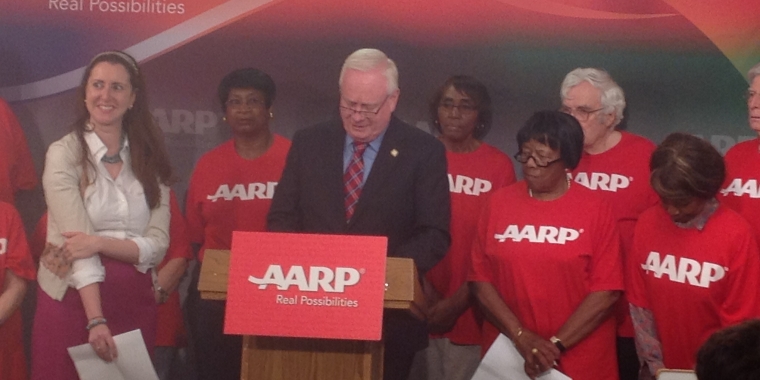
More Relatives Raising Children Could See Help in Creating Stable Homes
Martin J. Golden
May 30, 2013
-
ISSUE:
- Aging

Aunts, Uncles, Adult Siblings and Great-Grandparents Could Seek Guardianship or Custody of Children Whose Own Parents Are Unable to Raise Them
ALBANY, N.Y. – Tens of thousands of children in New York being raised by aunts, uncles and adult siblings when their own parents have stepped out of the picture could get a better footing in life under a bill working its way through the New York State Legislature.
The “Relative Caregiver Bill” (S2094A/A7189A), sponsored by Senator Martin Golden (R-Brooklyn) and Assemblywoman Nily Rozic (D,WF-Queens), would give these relatives the same rights as grandparents when raising children whose own parents are unable to do so.
The bill allows these non-grandparents to seek legal custody, providing the children a solid foundation through a more stable home life.
The NYS KinCare Coalition estimates that up to 40 percent of all non-parent relatives raising children in New York are aunts, uncles, adult siblings and great-grandparents.
The bill would give them the ability to seek guardianship or custody of children who have lived in their homes for at least two years continuously if the caregiver can prove the parent or parents voluntarily relinquished care and control of the child.
This would reduce trauma and stress on both the caregivers and the children, while giving caregivers the legal right to access basic medical care and provide medical consent for the children and enroll them in school.
The legislation allows these relatives to claim “extraordinary circumstances” under Domestic Relations Law §72 in order to apply to the courts for guardianship or custody.
The Annie E. Casey Foundation has reported that 153,000 children live in the care of a non-parent relative in New York.
Senator Golden said: “Our great nation and State was built by working families - families that pulled together during difficult times and enjoyed the fruits of their labor during good times. Our social fabric is built on a strong family unit. This bill does one simple thing - offer the option of keeping families together. We should do everything possible to keep children with their families if those families provide a safe and secure environment. This is better for our taxpayers, and more importantly, for our children. That is why passage of this legislation is critical. It is my hope that the Senate will act on this bill quickly.”
"Now more than ever, traditional family roles are being redefined by children who are often closest to their aunts, uncles, or great-grandparents, and situations in which second degree relatives often fill the primary guardian's role," said Assemblywoman Rozic. "A familial bond is what ultimately matters most, and this legislation is a great step forward in continuing to provide New York's children with healthy, safe, and productive environments."
“A solid foundation is the key to success, and New York can go a long way to ensuring a solid foundation for the tens of thousands of children whose parents are unable to raise them by enacting this bill,” said Beth Finkel, State Director for AARP in New York. “AARP thanks Senator Golden and Assemblywoman Rozic for leading this effort, which is so important not only to these children and their own families but also to maintaining healthy communities across the state.”
Gerard Wallace, Director of the NYS Kinship Navigator and Co-Chair of the NYS KinCare Coalition, said: “Just like children who are living with their grandparents, children living with aunts, uncles, and other relatives have experienced stress, trauma, and loss. To recover, they too need stable and loving homes. This bill provides stability to an estimated 60,000 homes where children live with relatives in New York State.”
Jeanette Smalls of Schenectady, who has raised her 9-year-old nephew from birth, said: “As an aunt caring for my nephew, I know that our home is the only safe and secure home that he has ever known. It is so important that our nephew and other children living with relatives have the security of this law.”



